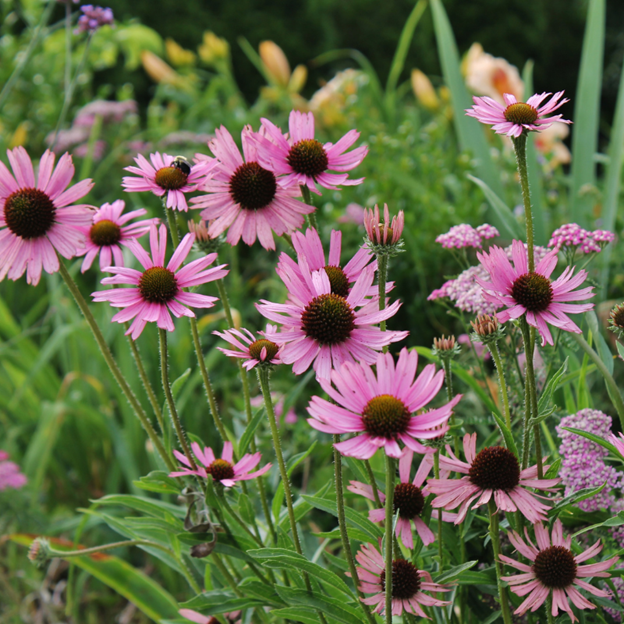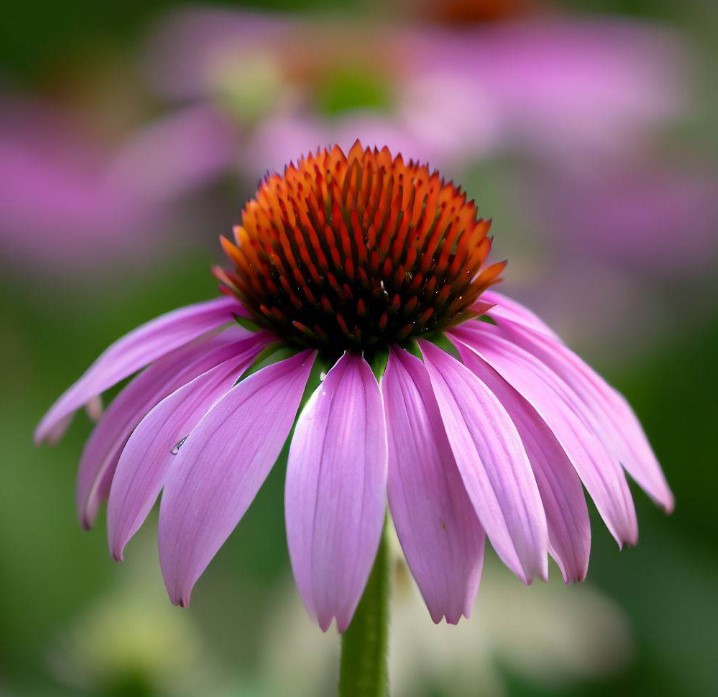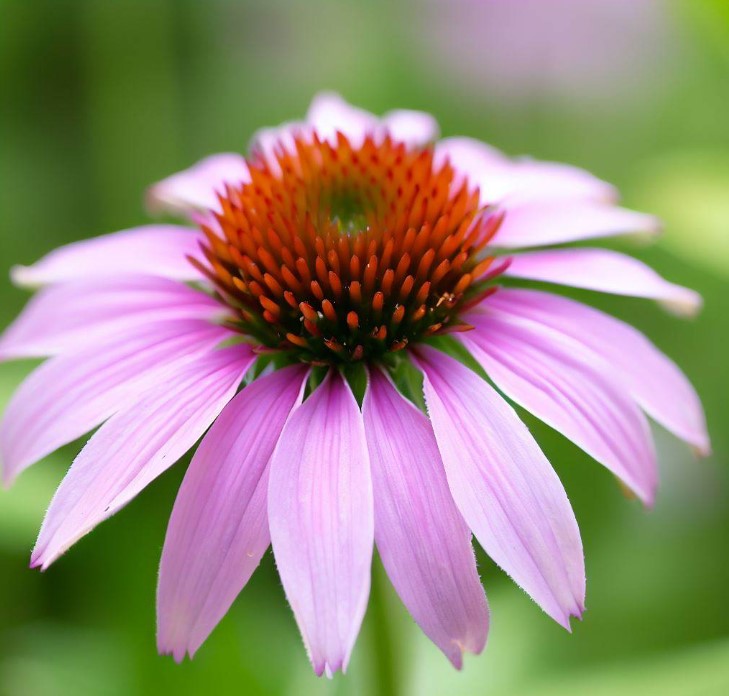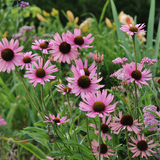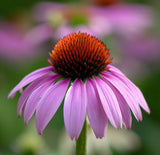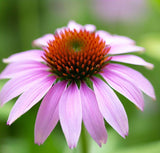ECHINACEA tennesseensis (Tennessee Purple Coneflower)
ECHINACEA tennesseensis (Tennessee Purple Coneflower) is a perennial flowering plant that belongs to the Asteraceae family. It is native to the southeastern United States, specifically found in Tennessee, Alabama, Georgia, and Kentucky.
Appearance: Tennessee Purple Coneflower typically grows to a height of 1 to 2 feet (30 to 60 centimeters). It has slender stems and narrow, lance-shaped leaves. The flowers are daisy-like, with vibrant purple to pink petals and prominent, cone-shaped, orange-brown centers.
Blooming period: This species typically blooms from late spring to early summer, usually around May to June. The flowers attract pollinators such as bees, butterflies, and other beneficial insects.
Habitat and cultivation: Echinacea tennesseensis thrives in well-drained, sandy or loamy soils and prefers full sun or partial shade. It is commonly found in open woodlands, prairies, and along roadsides. In terms of cultivation, it is a relatively low-maintenance plant and can be grown in home gardens or naturalized in wildflower meadows.
Conservation status: Tennessee Purple Coneflower is listed as an endangered species due to habitat loss and its limited range. Efforts have been made to protect and restore its natural habitat.
Garden and landscape use: Echinacea tennesseensis is a popular choice for wildflower gardens, native plant gardens, and pollinator gardens. It adds color and attracts beneficial insects to the landscape. It is also suitable for rock gardens and mixed perennial borders.
Medicinal and herbal uses: Like other Echinacea species, E. tennesseensis has been traditionally used in Native American medicine for its potential immune-boosting properties. Some people use its roots, flowers, or leaves to make herbal remedies or teas. However, it's important to note that the efficacy and safety of herbal remedies should be discussed with a healthcare professional.
| Number of Seeds | Max Coverage Area (Square Ft.) | |
|---|---|---|
| 0.5OZ | 2,656 | 44 |
| 1OZ | 5,313 | 88 |
| 1/4LB | 21,250 | 350 |
| 1/2LB | 42,500 | 700 |
| 1LB | 85,000 | 1,400 |
| 5LB | 425,000 | 7,000 |
Scientific Name: Echinacea Tennesseensis
Common Name: Tennessee Purple Coneflower
Plant Type: Perennials
Family: Echinacea-Coneflowers
Native Range: Tennessee
Full Growth Height: 2-3 ft
Spread: 1-2 ft
Zone: 3-10
Exposure: Full Sun, Partial Sun
Blooming Season: Spring (Late), Summer (Early, Mid)
Attracts: Birds, Butterflies
Flower: Showy, Cut Flowers, Dried Arrangements
Flower Color: Rose Purple Petals with Copper Orange Central Disk
Resistant: Drought, Deer, Clay Soil, Dry Soil, Rocky Soil
Water Requirement: Medium
Soil Type: Well-drained, Chalk, Loam, Sand
Soil pH: Alkaline, Neutral, Acid
Garden Uses: Cottage Prairies, Meadows, Informal Gardens

